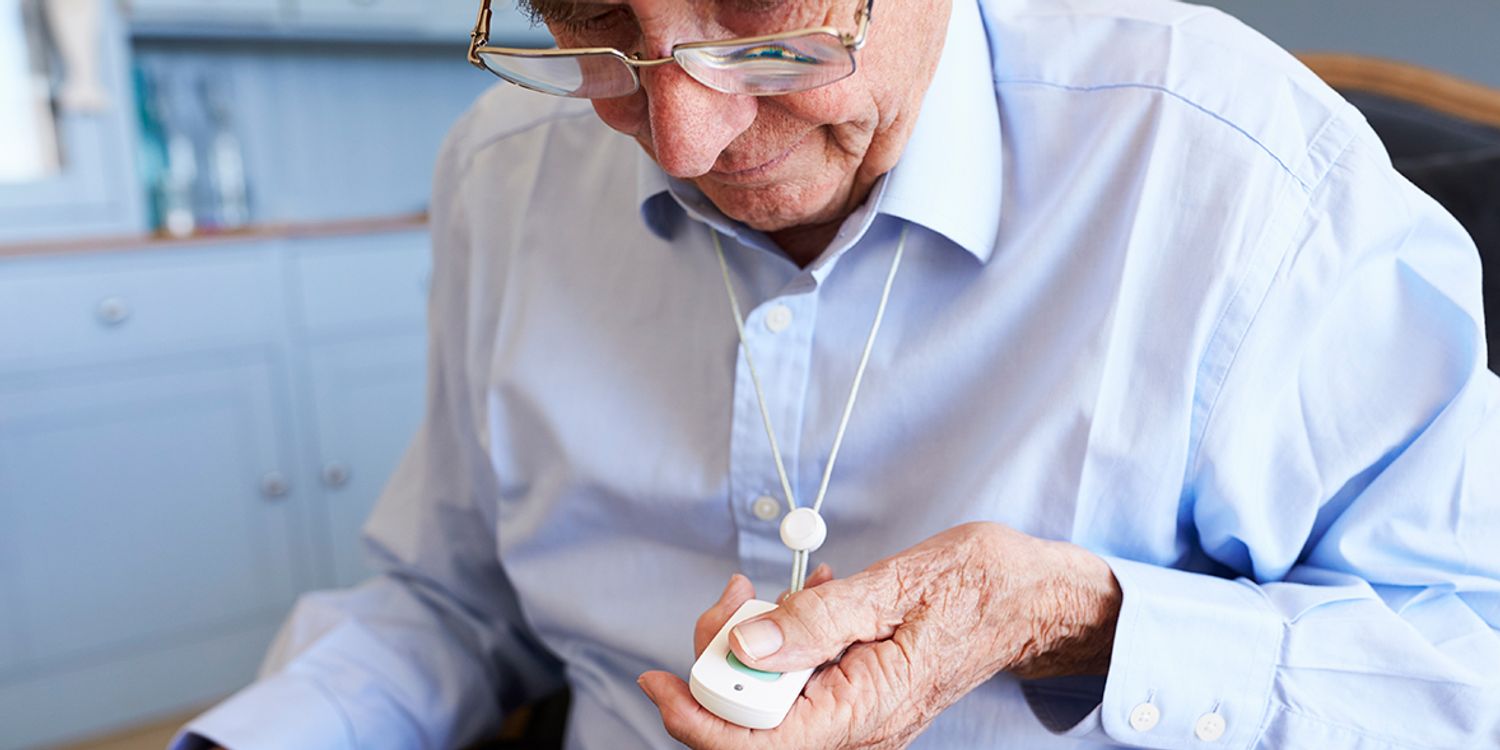Phone:
1300 417 415
Understanding the Benefits of Personal Alarms for the Elderly

Are you considering purchasing a personal alarm for your elderly loved one? Navigating the
options can feel daunting, but understanding the advantages of these devices can help you
make an informed decision. Personal alarms, particularly auto-dial and monitored types,
offer numerous benefits that contribute to the safety and wel -being of seniors living
independently in their homes.
Auto-Dial Alarms: A Closer Look
Auto-dial alarms function by sending emergency alerts to preset mobile phone numbers
when triggered. These alarms provide a sense of security through features such as GPS
tracking, speed monitoring, and fall detection. They offer the following advantages:
- Constant Monitoring: Auto-dial alarms continuously monitor the wearer’s location and
movements, including sudden changes that may indicate a fall or distress. - Customizable Alerts: Users can program the alarm to send updates on the wearer’s
coordinates or alert designated contacts in case of an emergency. - User-Friendly Design: Available in pendant or smartwatch styles, auto-dial alarms
cater to different preferences and needs. Pendants with large SOS buttons are ideal
for those with limited dexterity, while smartwatches offer additional functionalities like
app support. - Peace of Mind: For both caregivers and wearers, auto-dial alarms provide peace of
mind knowing that help is just a button press away, whether at home or on the go.
Selecting the appropriate auto-dial alarm depends on various factors, including the wearer’s
physical and mental health condition:
- Pendant vs. Smartwatch: Consider the user’s comfort and ease of use. Pendants are
straightforward with large buttons, while smartwatches offer more features but may
be challenging for individuals with limited dexterity. - Fall Detection and GPS: Opt for models with fall detection and GPS capabilities,
especially if the wearer is prone to falls or frequently travels alone. - Consultation with Healthcare Professionals: Prioritise consultation with the wearer’s
healthcare provider to determine the most suitable option based on individual needs
and preferences.
When purchasing a personal alarm, pay attention to key safety features:
- Battery Life: Ensure sufficient battery life for continuous usage, with at least 24 hours
of active battery time. - Charging Convenience: Look for models with easy-to-use charging cradles or
magnetic docks, especially for users with limited dexterity. - Fall Detection and Geo-Fencing: These features provide added security by detecting
falls and alerting contacts when the wearer leaves designated areas. - Two-Way Communication: Enables direct communication with emergency response
teams for quick assistance and assessment.
Monitored Alarms: Enhanced Safety and Support
Monitored alarms offer an additional layer of protection by connecting users to 24/7
emergency response centres. Key advantages include:
- Rapid Response: Trained professionals respond promptly to emergency calls,
ensuring timely assistance during critical situations. - Two-Way Communication: Users can communicate directly with response teams,
facilitating efficient assessment and coordination of appropriate help. - Mobile Functionality: Some monitored alarms are mobile-enabled, allowing wearers
to maintain safety and support while on the move.
In conclusion, personal alarms empower elderly individuals to maintain independence while
ensuring prompt assistance in emergencies. Whether opting for auto-dial or monitored
alarms, understanding the unique features and benefits can guide caregivers and seniors
towards a safer living environment. By prioritising safety and considering individual needs,
personal alarms become invaluable tools for promoting the well-being of elderly loved ones
at home.

